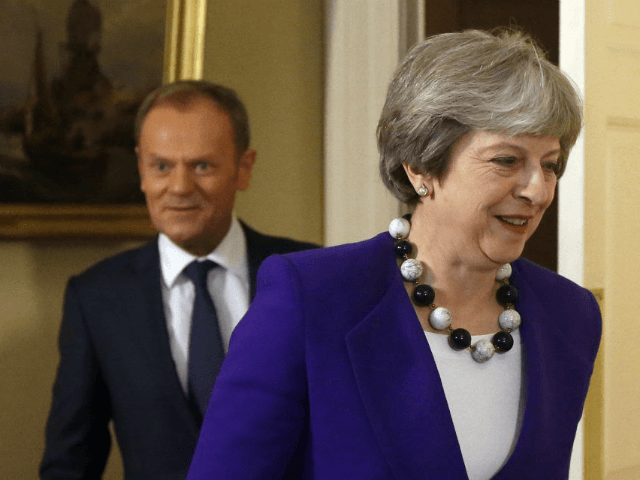The UK will continue to pay the agreed so-called Brexit ‘divorce bill’ for almost 50 years until 2064, the Office for Budget Responsibility (OBR) has estimated.
Publishing its assessment as the Chancellor gave his Spring Statement on the economy, the OBR said the final amount would be around £37.1 billion. The government had estimated it to be between £35 billion and £39 billion.
They say £16.4 billion will be paid between 2019 and 2020, with payments continuing largely as they are now.
Between 2021 and 2028, the UK will pay “reste à liquider” (budgetary commitments) of £18.2 billion, and a further £2.5 billion will be handed over between 2019 and 2064, largely pension commitments.
However, according to the OBR estimates, the UK will be spending less than if it had remained a member of the European Union (EU) in 2020 and 2021, with the nation being left £3 billion better off thanks to the Brexit vote.
The following year, the UK will be paying £3.3 billion less than if it had not voted to leave the EU, rising to £5.8 billion in 2022 and 2023.
Meanwhile, the forecasting body conceded Brexit had had less of an impact than claimed before the referendum and their estimates for the economy overall in coming years were fairly neutral, with them concluding:
“We have revised GDP growth up a little in the near term thanks to a stronger world economy, but the medium-term outlook is little changed.
“And we have revised borrowing down thanks to stronger receipts, but the improvement is largely cyclical. So headroom against the Government’s fiscal targets is virtually unchanged from the autumn.”
However, the OBR also said that it is “impossible” to quantify the full effect of Brexit on the public finances today, with negotiations ongoing.
“One of the more direct and readily quantifiable ways that Brexit will affect the public finances is by reducing or stopping the UK’s contributions to the EU budget.
“But, soon after the referendum, the chancellor guaranteed funding for certain EU projects after the UK leaves the EU (eg in agriculture, science and structural fund projects), subject to various conditions.
“And the prime minister has subsequently stated that the UK may continue to make contributions where it wishes to participate in some European programmes.
“The government has not yet fully articulated its intentions in this area and, even if it had, the precise post-Brexit outcome remains subject to negotiation.”

COMMENTS
Please let us know if you're having issues with commenting.